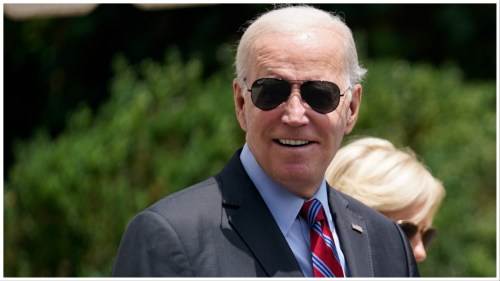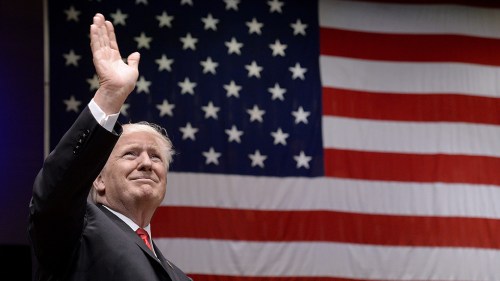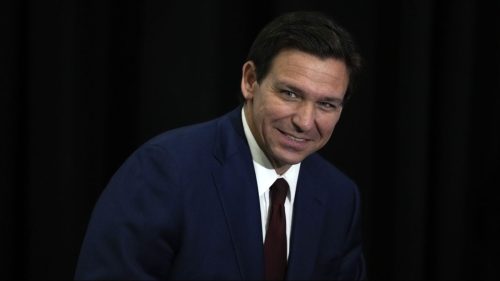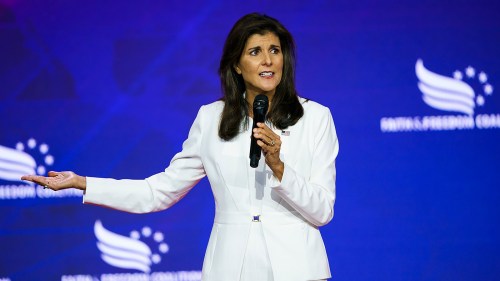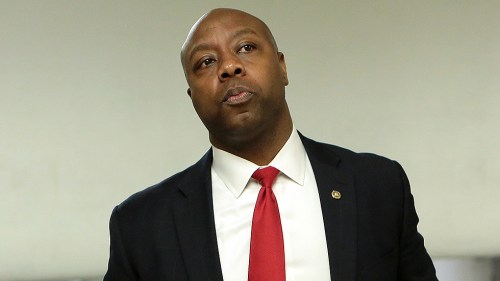RFK Jr. courts Black voters, looking to chip away Biden’s support

Independent White House candidate Robert F. Kennedy Jr. is accelerating his courtship of Black voters across the country, hoping to gain an edge with one of the most critical voting blocs to President Biden’s victory.
Kennedy is pitching himself in Black churches, roundtables and among entertainers, believing he can build enthusiasm around a third option on November’s ballot.
The groundwork has caught the attention of Black political and media figures, with some fearing that Kennedy will further cripple Biden’s White House prospects and others being admittedly more receptive, even intrigued, by his message.
“RFK Jr. is making the effort to have real conversations in Black spaces,” said Tim Black, an African American podcast host. “The important part is those spaces are ones where he can’t control the dialogue. The dialogue is spontaneous, thus not scripted. Authentic.”
Kennedy’s flood-the-zone approach is a visible contrast from Biden’s, who has turned down many off-the-cuff interview opportunities this cycle as he tries to capture the same firm support from Black voters he enjoyed last election. Kennedy, meanwhile, is more unscripted and unconventional.
Some Black voices say that his willingness to speak freely with voters has had a profound effect in appealing to one of the most reliable voting constituencies at a time when excitement around Biden is low.
“RFK Jr. and his campaign providing a live in-person connection with us in real time is very effective,” Black said.
Looking to break into both Biden’s base popularity and Trump’s marginal ascent with Black voters, the environmental lawyer has built a strategy around what sources close to him say is a deep involvement with the community dating back years.
“Bobby has had a tremendous background working in the Black community way before he even decided to run for any public office,” said Jamel Holley, a senior adviser to Kennedy and former mayor of Roselle, N.J., noting his steady involvement working with the NAACP and on other race-related initiatives.
“What we’ve been doing is going into the African American community in various states,” he said. “There’s about 40 to 45 percent of Black voters who are at a standstill right now. They don’t want to vote for Biden, they don’t want to vote for Trump.”
“We believe that providing them an option of a third-party candidate like Bobby, some of them are just not even interested in the two-party tier system, I think it’s the right move to make,” he said.
Kennedy’s camp has recently sought out new avenues for engagement. He appeared with American rapper Eric B at an event at the First Baptist Church food pantry in Queens, N.Y. Before that, he held a conversation with Black female activists during a series of talks during Black History Month.
“I’m here not to preach to people, but also to learn,” Kennedy said during a discussion with Black women that spanned a range of issues, including gun violence, an area of disproportionate concern among the community.
He also held a barbershop talk in Atlanta with fellow hip-hop artist and activist Killer Mike, a prominent leftist and former surrogate for Sen. Bernie Sanders (I-Vt.).
Their relationship is an indication of the potential crossover appeal the 70-year-old contender could have at a time of deep dissatisfaction with Washington politics. After switching from a Democrat to an Independent in October, Kennedy has gotten a fresh look from some Black progressives, who have expressed an interest in finding other choices.
Kennedy has shown early signs of traction among Black activists sympathetic to the Sanders coalition from 2016 and 2020 that has spoken out against economic hardships, food insecurity and improving conditions for working class people. That crossover, if actualized, could also peel off potential voters from fellow Independent Cornel West, who was integral to Sanders’s mobilization of Black voters and is running as an insurgent against Democratic and Republican conventions. West, for his part, told The Hill he is also offering voters another alternative.
With still over eight months from Election Day, polling shows Kennedy may gain more traction. If the current state of the race is an indication, at least some Black voters who are dissatisfied with the two frontrunners would consider voting for Kennedy. A New York Times/Siena College survey from October shows Kennedy earning double digit support – 26 percent – of swing state Black voters would back him over Biden or Trump.
Reached for comment by The Hill on Thursday, Kennedy’s campaign press secretary Stefanie Spear said in a statement: “Mr. Kennedy’s focus on economic revitalization and those who have been dispossessed by the corrupt merger between corporations and government has a natural appeal to Black voters.”
“There are a lot of Black voters in this country who feel taken for granted by the Democratic party and ignored by Republicans,” Spear said.
Kennedy has outlined an agenda aimed at what he calls “racial healing,” which includes topics ranging from police and prison reform to policies to build up school infrastructure and support those struggling with addiction, with which Kennedy has openly battled in his personal life. His plan acknowledges an “unhealed legacy of racism” in the United States.
“He’s becoming a very attractive candidate to African Americans,” Holley said. “The success has been working, as we gradually go state by state, month by month, we’re seeing an increase in support for Bobby and I think it’s important that we continue to pivot and do that.”
Holley says that as he tours the nation in places like California and Georgia with Kennedy, he hears from disaffected voters from both parties who say that “we don’t believe in those types of candidates anymore,” noting the “same message” and that “nothing has changed.”
While Kennedy is appearing to gain traction among some Black voters dismayed with the two-party system, others within Democratic circles believe his candidacy is an affront to the basic principles they see as paramount in this election, including safeguarding democratic norms like the right to vote freely. That is particularly worrisome among those who see Trump’s reelection as the top concern in November.
Anything that depresses turnout or creates a “spoiler” effect for Biden could promote a second Trump term, some Black strategists caution. Kennedy has been a leading factor in that argument. If he qualifies for a handful of swing states, he could theoretically convince enough would-be Biden voters to back his candidacy.
“Black voters worked too hard to secure the right to vote to waste it on a Jill Stein sequel,” said Michael Starr-Hopkins, referencing the fear that Kennedy could be a spoiler candidate in the way that many Democrats perceived Stein in 2016.
“RFK Jr. can’t convince his own family to support him, so I fail to see how his campaign serves as anything other than an in-kind donation for the Trump campaign,” Starr-Hopkins said.
“If history’s taught us anything, it’s that this sort of performance usually ends with a standing ovation from the very folks we’re all trying to keep away from the White House.”
Copyright 2023 Nexstar Media Inc. All rights reserved. This material may not be published, broadcast, rewritten, or redistributed. Regular the hill posts
